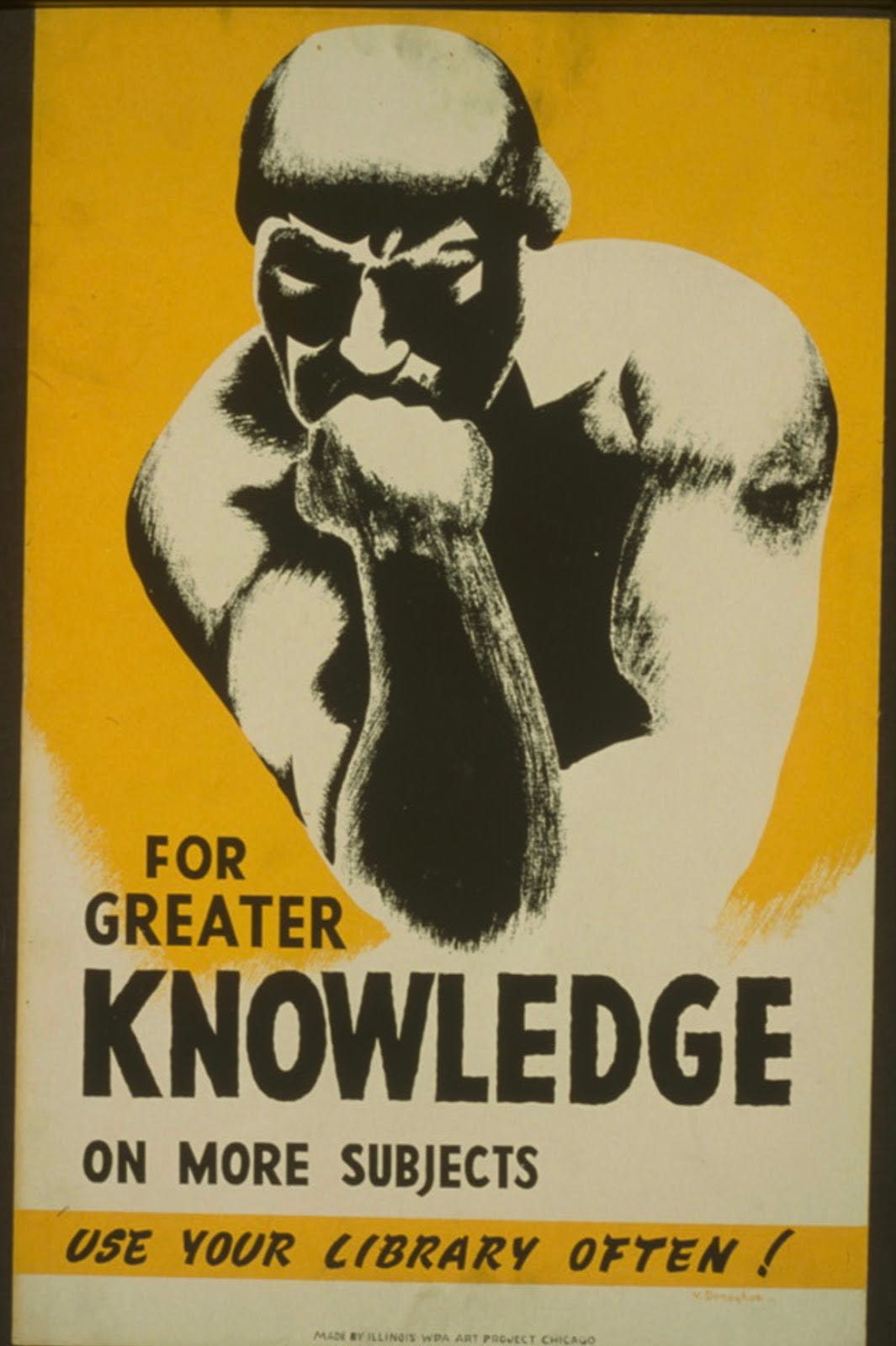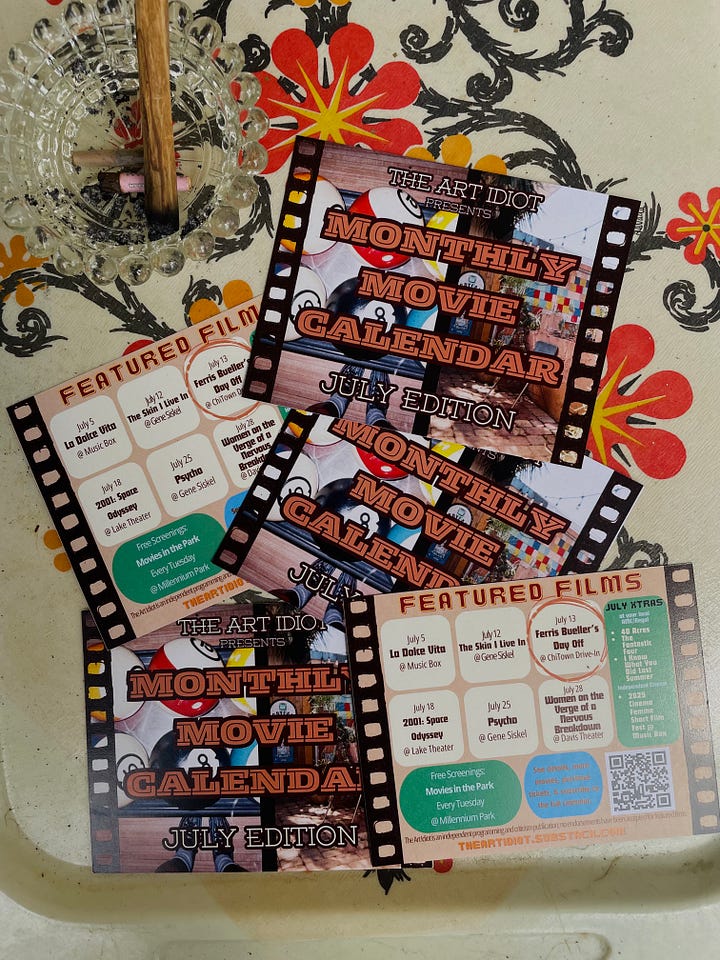The Art Idiot: Previews & Propaganda
Is it what you believe or what they want you to believe? Introducing Trailers Theory.
I must admit, I am quite partial to the (increasingly excessive) trailers prior to a movie’s screening. Perhaps it’s my commitment to being on time or the need to run more experiments and gather observations for my Trailers Theory. Big blockbusters beget new trailers for future big blockbusters; it only gets old because I go so often.
Theorists have the tendency not to actualize their ideas. I, too, indulge in sometimes only generating; I like my cookies a little underbaked. The fun begins when the theory is put to the test. Collecting case studies is crucial in drawing a conclusion. The difficulty comes when it detours you back to the drawing board.
The Trailers Theory essentially acknowledges that the trailers played before a movie are representative of the film’s style, genre, budget, and likelihood to be great. For example, American Fiction previewed a majority of trailers for Black movies, meaning that every trailer was about a film geared towards Black audiences, mostly dramas, all with Black casts. Scary movies will always show trailers for more scary movies; children and family films will show PG trailers, mostly animated; IMAX movies will always show trailers for more IMAX movies. Certain studios will also only play trailers for their upcoming films — Focus Features is the first that comes to mind.
While it’s obvious, of course, it’s an aspect of the movie-going experience that I am also critical of. Due to the previously mentioned lengthening run time, the foreseeable future looks like continued slacking on conducting experiments. AMC announced that preview runtimes will increase to over 30 minutes, and I’d rather use that previous time to grab the dinner that I am going to sneak into the cinema. Mediocre trailer editing has also suspended a movie’s mystery; multiple versions of trailers prove unnecessary, only good for spilling its own secrets.
Trailers Theory hypothesizes that the average rating of movies played before the feature film will indicate or equate to the rating of the feature film. A bit jumbled in explanation, in need of some refining, so lemme break it down a bit better:
Before 28 Years Later, they showed a variety of genres. Most scary, but a few dramas and thrillers. All films that I am interested in seeing and were a precursor of the horror/drama/thriller that 28 Years Later turned out to be. Flash forward to the future, all of the trailers are released and receive a hypothetical average tomato-meter score of:
Movie #1: 70%
Movie #2: 87%
Movie #3: 93%
Movie #4: 66%
Movie #5: 84%
This results in an average score of 80%. Trailers Theory takes this 80% and equates it to the tomato-meter score of 28 Years Later, which is 89% from certified-fresh critics (which is a number pooled from a variety of publications) and 64% from “approved audience” members. The average of those two scores is 76.5%, which is pretty damn close to the reverse-predicted 80%!
This approach, or algorithm or equation, can also be applied to Letterboxd average, Metacritic, etc.
Now, one may question: what’s the use of a theory if it is not predictive of a certain product or result? And to that I say, who gives a damn? Sometimes it’s fun to throw shit at a wall and see what sticks.
However, films that are picked up (for distribution) later in their life, after their festival runs, often have a handful of ratings and reviews circulating. Additionally, let’s shimmy around our sequence of events for this equation. When studios or major theaters are releasing their trailers, I assume there is somewhat of a premeditated strategy (e.g., the previously mentioned genre theme). What if studios or theaters use such an algorithm to sway which trailers they put up for certain movies? Who would want to risk their film being played before or associated with a rotten flop?
Since high school, I have taken a special interest in propaganda; my IB Historical Investigation1 surveyed and analyzed the different tactics used during WWI and WWII. Ultimately, posters were quite popular during WWI, whereas more advanced technologies and advertising were more utilized and successful during WWII. As we’re on the brink of WWIII, there is no stronger tool than The Internet. Referring to it like the proper noun that it is, The Internet is just shy of reaching villain status, like Mission: Impossible’s “Entity” or “Ultron” from Avengers.
As this essay began to take shape after years of ruminating, The Internet trend “Propaganda I am (not) falling for” took rise. Despite my natural lean towards intellectualism, let’s remember that this is The Art Idiot, and Love Island USA provides a necessary balance. Episodes air nearly every day; all forms of social media are in a frenzy analyzing and memeifying the “characters.” For those unfamiliar with the brain-rotting television series, Love Island places about 7 women and 7 men on a remote island to “find love.” It’s all about the development of interpersonal relationships under a microscope in a controlled environment; if narrated by David Attenborough, we’d likely refer to it as Bravo’s rendition of Animal Planet. Remarkably, the Love Island narrator is also an influential aspect of the entertainment that unfolds and a perpetuator of the producers’ problem-planting propaganda.
With the impending rise (takeover) of fascism in the United States, I often see vintage posters circling The Internet for humanities-oriented cultural institutions. Art Deco designs that promote our local libraries and reading, artistic calls for peace rather than infographics. In the 21st century, we call this marketing; in the 20th century, we called it advertising. It’s positive propaganda, but still propaganda with a purpose.

Projection is pivotal in the making of and partially why propaganda is put into the world; at the end of the day, pushing one's own agenda onto other people is why it exists. We used to uplift the act of acquiring knowledge, now we call for the simplification of the search, the interweaving of AI into all of our quests for information. In the case of Love Island, producers push the agenda they want the audience to see, but The Internet is too wise. The Internet’s agenda is stronger, fabricating relationships and problems that we never see on the screen. It’s easy to see why media literacy rates are so low; the unreliability and overflowing amount of information is difficult to parse through when it’s all tethered to The Internet — a wasteland of whatever goes.
Trailers Theory now also theorizes, or assumes, that previews are pieces of propaganda. Albeit not explicitly, previews, like all propaganda, are political. More broadly, studios are expanding their marketing mechanisms. Actors are sent on press tours — aren’t they paid to act during those too? We’re sold the “mystery” in almost too many ways. The saturation of the story makes it stale by the time we see the full thing. The Internet takes a movie’s marketing materials, and it can make or break ticket sales.
The most recent success of this is seen with Ryan Coogler’s smashing, sultry Sinners. Kodak’s video of Coogler coolly explaining the different types of celluloid that movies can be made on; his thick Oakland accent enchanting us as he gently grasps Super8 strips, ending on the large IMAX 70MM. Undoubtedly a movie, an original story, worthy of such success, yet it, too, is attributed to The Internet’s promotion.
One day, when the money comes in, I’d love to retroactively apply the average star-rating or Rotten Tomatoes score of all of the trailers played before a movie to see if it aligns with the feature film’s rating. Truly putting Trailers Theory to the test with massive sets of data. Sort of like sports betting or crunching numbers for the sale of a stock – a predictive indicator of a subjective matter. I’d even offer taking it one step further, every individual has a personalized code for the likelihood they will or will not enjoy a movie – surely this could be dangerous and cause people not to explore or take chances, but people aren't taking chances anyway when a single ticket costs more than $15. The future of Trailers Theory may be the leading weapon against streaming services’ ability to give audiences samples of shows and films for a relatively lower bundled price.
Regrettably, it feels plausible that someone could write a code for this – could this be considered tech and automation for a good cause? Is it a new language for somehow boasting the box office’s business? I spiral into the fact that it could lead to the demise of taking chances on filmmakers. There can only be so much colluding between coding and creativity.
A notable caveat and exception to this theory would be the art-house, institutional, non-commercial theaters (e.g., Music Box Theater, MoMA, Gene Siskel, etc) because their programming does not typically adhere to the usual commercial Hollywood release schedule. Surely they feature a few of those wide-released, but their previews are tailored to their upcoming schedules. These previews are often specially made to accompany their respective series. Independent cinemas are in their own fight to get butts in seats; taking their space on The Internet to add to their aura, interacting with their audience to garner new sales. This is not to be confused with a complaint; I fall for their charm. Besides, their popcorn and butter are always better.

The exploration of Trailer Theory continues. In the meantime, happy Pride, free Palestine, and keep critical thinking alive.


To access the digital Google Calendar, which programs movies for (almost) every day, sign up here.
That’s all for this issue, folks! Stay tuned as The Art Idiot continues to grow and evolve. Watch, read, eat, or listen to something you must recommend? Send it my way, always.
Enjoyed this piece?
International Baccalaureate Program







I love movie trailers, and always try to arrive early enough to watch them all. One time, in an effort to find a movie to watch, I spent a solid hour on YouTube simply watching trailers and writing down my list of movies to watch. I never, in fact, even watched a movie that night, but I still refer back to THE LIST. My son, daughter and I now have a pact to only watch 3-4 trailers and pick something to watch quickly. Otherwise "We'll be here all night watching trailers mom." There's also "Hurry, stop the trailer before it gives away the entire movie!!! Let's just watch it."